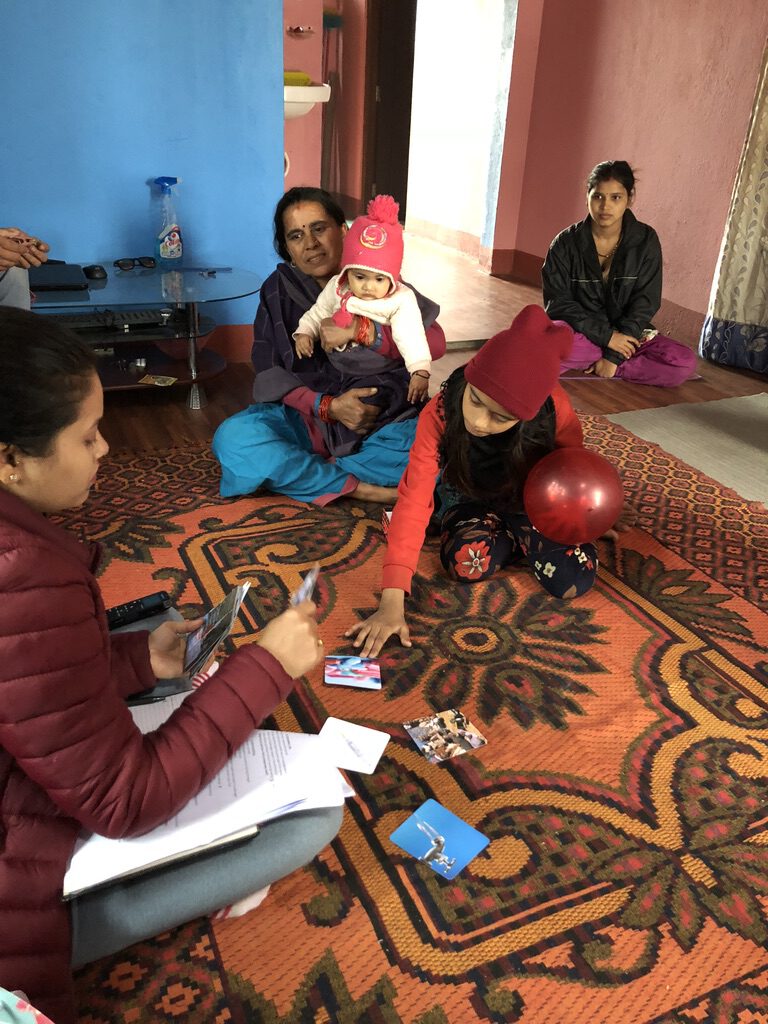Lab.Our ward project completes design research in Nepal
M4ID’s senior service designer Sandra Viña visited rural health care centres in Nepal to assess potential locations for the next stage of the Lab.Our Ward project. The project is due to kick off its design phase this week.
“We were looking at two different locations, one in Nawalparasi, the Dumkauli Primary Healthcare Center; and the other one in Shindhupalchok District”, tells Viña.
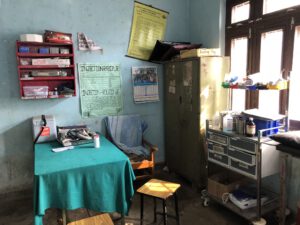
“In Nawalparasi, the aim is to improve the existing healthcare facility. In Shindhupalchok, a new facility will be built by Chaudhary Foundation, and after reviewing the facility layout M4ID will create a service delivery model to enhance effectiveness and quality of services.”
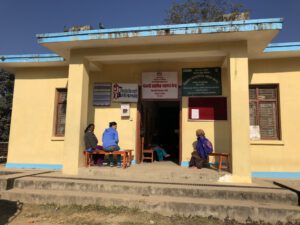
Before starting the work, the team undertook a thorough assessment of the current situation. “We looked into the conditions with a wide lens: the numbers of key staff, availability of equipment such as beds etc., as well as the quality of the services from the community’s perspective.”
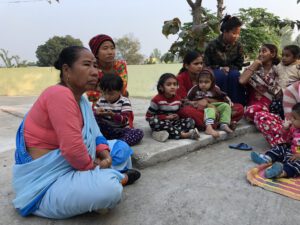 For Viña, seeing the healthcare facility first-hand was important. “It was crucial to visit the place – stepping into the various rooms and quarters of the facility to experience the space, provides us key information such as the ‘hard qualities’ of the space, equipment, and the buildings as well as the ‘soft qualities’ of the offering.”
For Viña, seeing the healthcare facility first-hand was important. “It was crucial to visit the place – stepping into the various rooms and quarters of the facility to experience the space, provides us key information such as the ‘hard qualities’ of the space, equipment, and the buildings as well as the ‘soft qualities’ of the offering.”
“Numbers are not always the most informative for work of this nature”, Viña says. “A case in point is that in one of the primary healthcare centres, some materials and spaces existed in theory, but in practice weren’t used properly or even at all. As an example, there were many empty rooms and spaces used as storage for used equipment. There was often a low level of hygiene and some of the buildings needed repair work and maintenance. On the other hand, some buildings were well maintained and clean and the staff were very friendly.”
Getting to know the community was at the core of a solid assessment, explains Viña. The team conducted several interviews with community members and volunteers. Altogether she spent 10 days in the country.
In Nepal, some communities are still recovering from the 2015 earthquake. Good healthcare services are scarce, and maternal and child health suffers as a consequence.
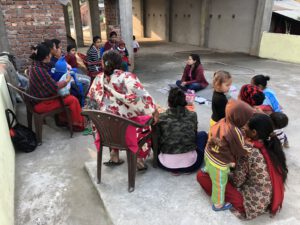 The project is a collaboration with the Chaudhary Foundation, and the aim is to create a new service delivery model with a special focus on maternal health.
The project is a collaboration with the Chaudhary Foundation, and the aim is to create a new service delivery model with a special focus on maternal health.
“After putting in place basic requirements for the healthcare offering, we will create strategies for engaging the community. For example, providing more comfort and a coherent service journey suitable for the needs of different people”, tells Vina.
More updates to follow soon!
Back to news